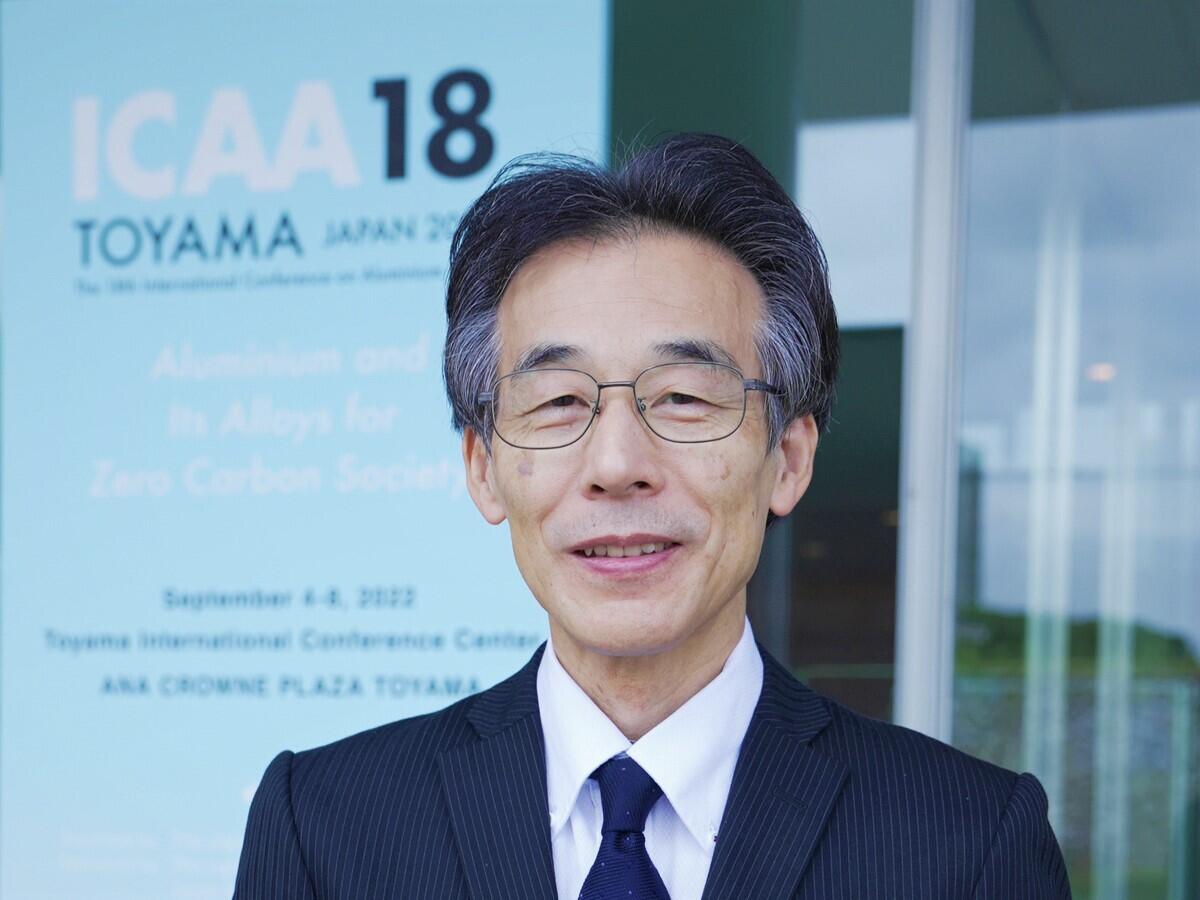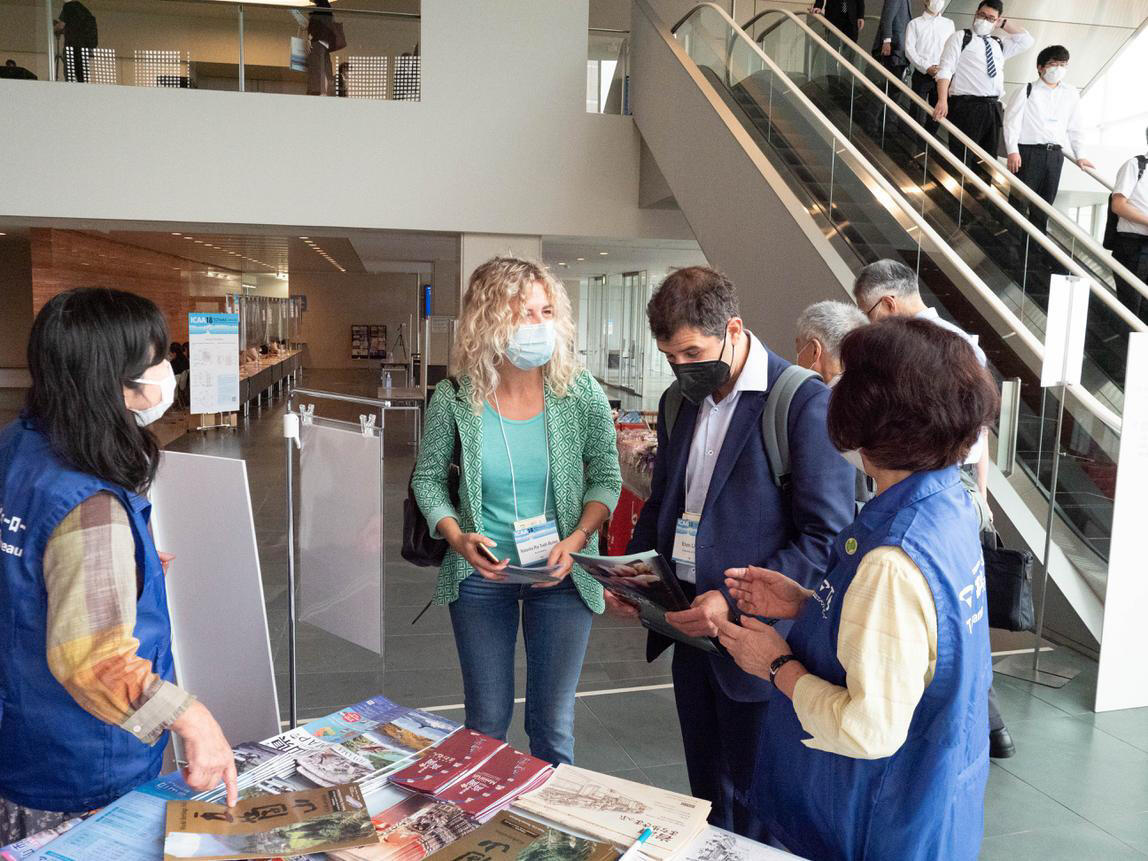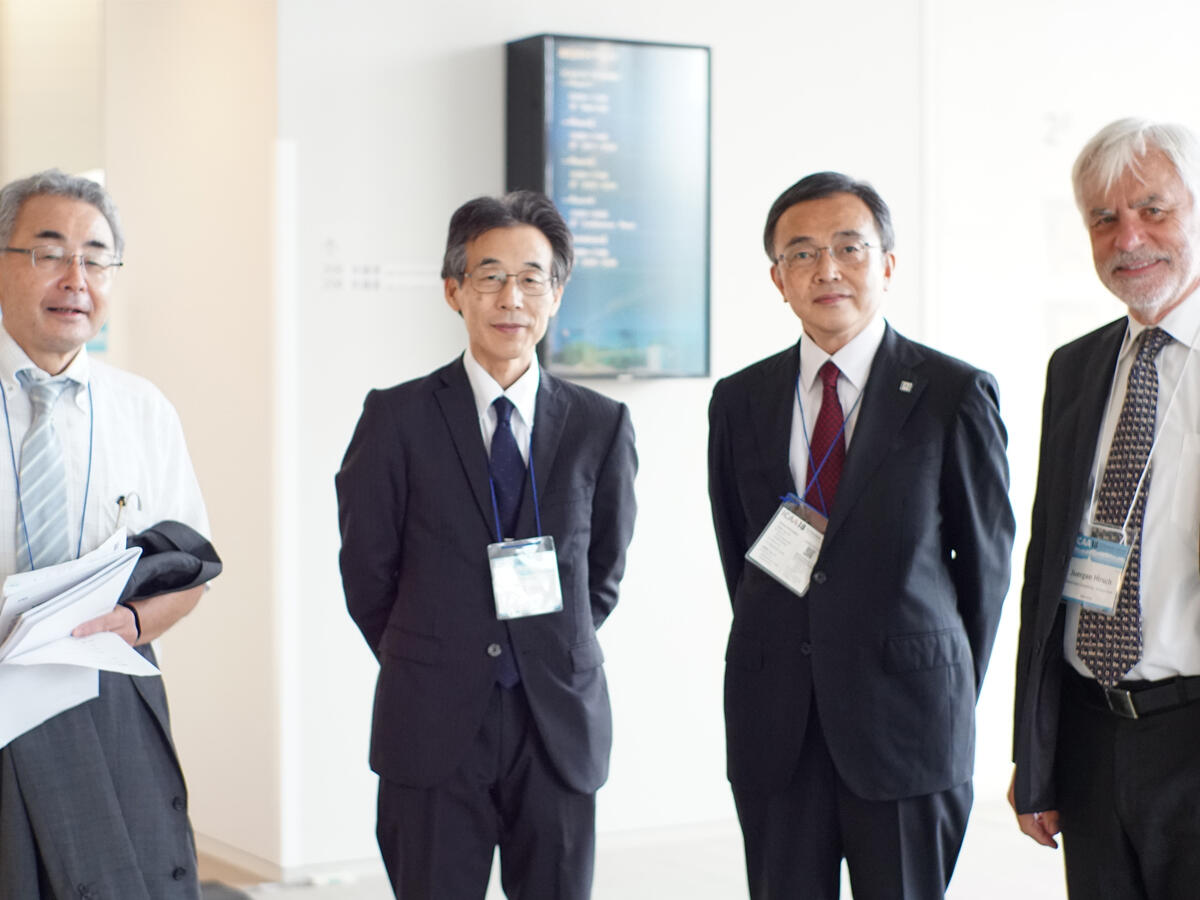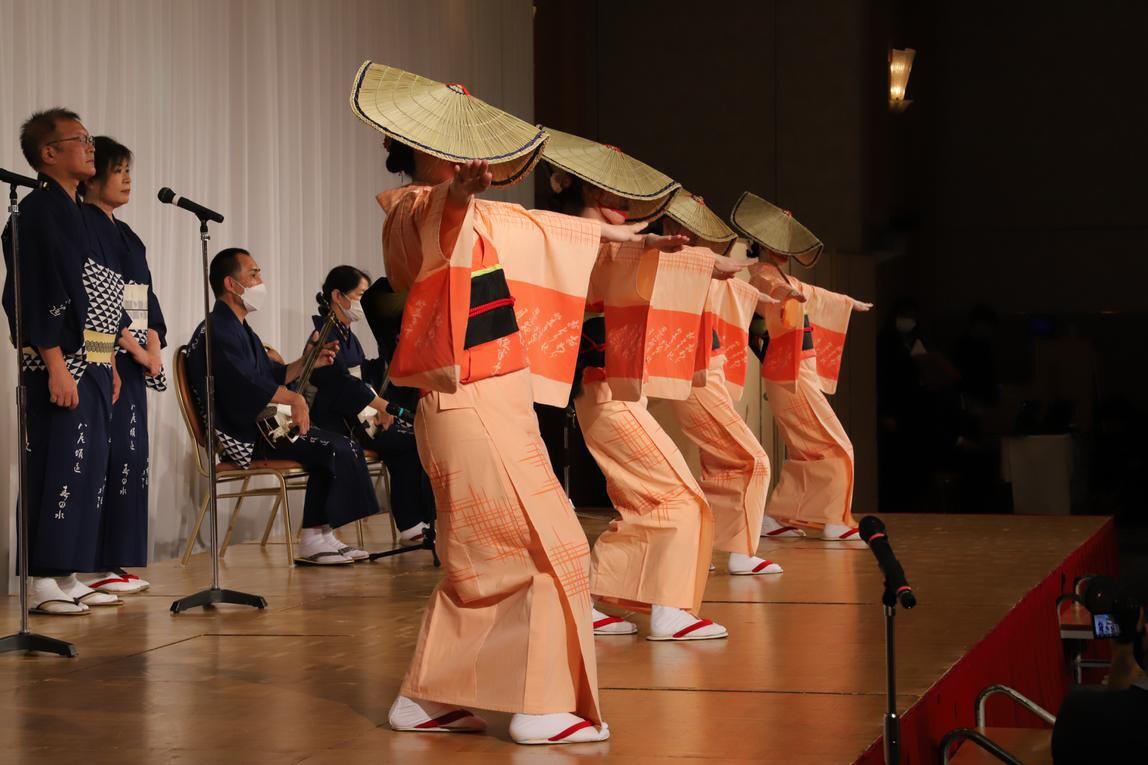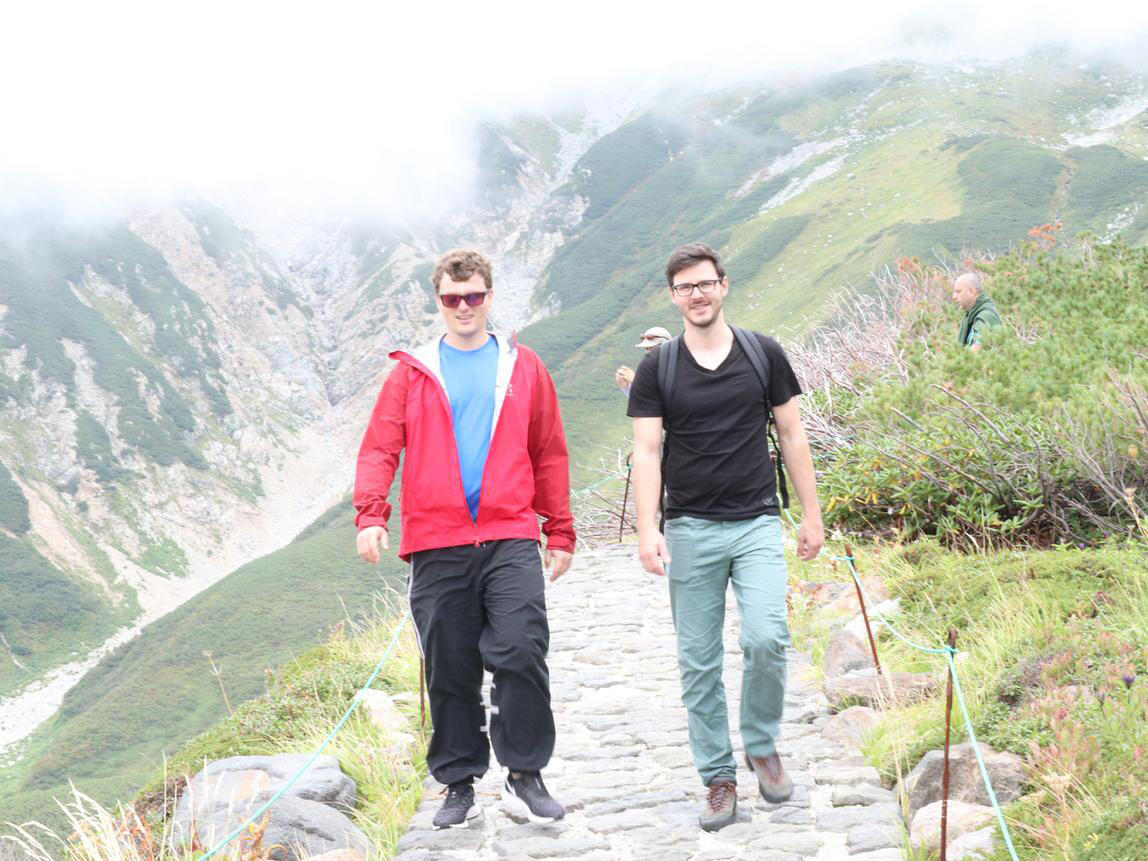Convention Case Studies
The 18th International Conference on Aluminium Alloys in Toyama
The International Conference on Aluminium Alloys (ICAA) is the only international conference in the world dedicated to aluminum, and this September saw the 18th version held in the city of Toyama on Japan’s west coast.
This was the third time the conference was held in Japan, and this year, saw a total of 477 researchers and engineers from 24 countries gather in Toyama.
The core theme was “Aluminium and its alloys for a zero carbon society,” to encourage participants to discuss issues surrounding the aluminum industry and types of research and technologies that might be needed going forward.
We spoke with Professor Kenji Matsuda from the University of Toyama, who chaired the conference’s Steering Committee, about the approaches to holding a multifaceted international event and the challenges involved.
Conference Overview
| Event Name | ICAA18 (The 18th International Conference on Aluminium Alloys) |
|---|---|
| Dates | September 4-8, 2022 |
| Location | Toyama International Conference Center, ANA Crowne Plaza Hotel Toyama |
| Attendance | 360 on-site + over 117 participants tuned in online |
Toyama Prefecture: The center of Japan’s aluminum industry
The host prefecture, Toyama, is one of the largest aluminum-producing regions in Japan, thanks in part to its abundant water and electricity from hydroelectric power generation, both of which are essential resources for smelting. The area also has excellent water transportation due to its multiple rivers and proximity to the ocean, allowing for easy exports.
The history of the aluminum industry in Toyama dates back to the early 20th century when renowned Japanese chemist, Dr. Jokichi Takamine saw potential in the region’s topography and began promoting its development. Toyama has since focused on establishing aluminum as a key industry and has launched the Toyama Aluminum Consortium, which aims to create new businesses and develop human resources through collaboration between industry, government, and academia. The prefecture is now home to many companies involved in aluminum, making it an ideal host for ICAA18.
An engaging environment for both in-person and online participants
The challenge when holding hybrid events is to ensure that both face-to-face and online participants have an equally excellent experience, so the conference organizers set about devising various ways to enhance the online environment. For example, the online conference platform allowed participants to engage easily with one another, which encouraged participants to introduce themselves, post photos, and spontaneously call for online and offline meetings.
The poster presentations, where awards are handed out, is another example. The organizers asked presenters to prepare abstracts, e-posters, and 3-minute videos that were presented only online on the event day to ensure fairness to presenters who could not attend in person. Other measures were further assumed for the corporate exhibits, including the provision of video content that could be viewed on the online platform and a chat communication function to ensure that both online and offline participants were equally engaged in the program.
For lecturers who granted permission, the organizers recorded their presentations and made them available on demand for a certain period so that people could ask questions and interact with them even if they didn’t attend in real time. In addition, time differences were also taken into account to make it easier for more people to participate online. This meant lining up presentations from North America in the early morning and presentations from Asia and Europe in the afternoon and evening with a more extended lunch break.
Furthermore, the year saw the continuation of ECR award. This award honors young researchers who, despite being in the early stage of their career, have brought an important impact or insight into aluminum science, technology and applications. The conference further provided young researchers and students with the opportunity to engage with and exchange ideas with a wide range of renowned scientists from different countries and backgrounds, both online and in person.
Flexibility ensured smooth organization
ICAA18 came about after nearly five years of careful preparation by The Japan Institute of Light Metals, which established an organizing committee and a steering committee for this year’s event to ensure efficient operation. While their initial intention was to hold the conference in-person, plans for a hybrid event were developed in parallel, allowing for either approach depending on the spread of Covid-19, both domestically and internationally. Toyama Prefecture also took a flexible approach, such as relaxing certain conditions and offering the use of the International Conference Center at a discounted price.
According to Professor Matsuda, there were some initial concerns over copyright protection of lecture video and presentation data, given that presentations would be online. To address those concerns, the organizers placed a high level of trust in the participants to not do anything that would violate research ethics. Thanks to the flexible response of the conference and the administration, the organizers were convinced that many overseas participants attended with confidence.
Enthusiastic support from the local community
The success of ICAA18 also owes much to the support from the local community. The Toyama Convention Bureau set up a tourism information desk and a “Welcome to Toyama” signboard at the bullet train exit of Toyama Station. The convention received a high number of applicants to work as volunteer operational staff, indicating that people were looking forward to holding the first post-pandemic international conference in Toyama. Local companies and organizations also displayed panels with information on the aluminum industry, and a demonstration was held to showcase Toyota’s Mirai, a hydrogen fuel cell vehicle that uses aluminum materials.
Organizers were also delighted to see the positive reaction from international participants. Professor Matsuda reflected that overseas participants who visited the city in person and caught a glimpse of the Mirai were surprised to see this form of carbon-neutral technology in action. What further impressed the organizers was how well the “Welcome to Toyama” signboard at Toyama Station was received — the sight of overseas participants actively uploading photos to the online conference was a joy to see, Professor Matsuda pleasantly recalled. He further added that the conference also positively impacted the local communities — learning from media reports that Toyama was hosting an international conference and drawing such international attention, made many locals proud and pleased.
Global awareness built through Toyama
As global efforts toward carbon neutrality progress, companies and researchers have become increasingly crucial in sharing information across countries and regions. ICAA18 provided an excellent opportunity to foster these exchanges and discuss issues the world is collectively facing. Moreover, many presentations focused on applied research to solve real-world problems.
Among other achievements, the event also raised awareness of carbon neutrality among domestic companies, enabling them to learn about developments overseas while also promoting Japan’s technological capabilities to the rest of the world. As Professor Matsuda emphasized, aluminum is a material that is easily recyclable and can contribute to the UN’s sustainable development goals (SDGs). In his words, it was therefore significant that an international conference with a theme of a zero-carbon society was held in Japan, especially in Toyama, where the aluminum industry is thriving.
A positive response from overseas participants
ICAA18 provided the opportunity to get out and about beyond the conference center, with excursions to nearby attractions alongside technical visits to local companies involved in the aluminum industry. As the comments below demonstrate, this was significantly well received by overseas visitors.
“I really enjoy visiting Japan because it’s clean, safe, has good hospitality, and the people are wonderful. It was my first time visiting Toyama, and I really enjoyed the seafood, fresh from the Sea of Japan, and the many things to do (in the area). The conference venue and the sound system used were excellent, and I was also surprised at how seamless the online and in-person meetings were,” said Ph.D. Rajeev Kamat from the ICAA19 Organizing Committee. He further added that he was deeply impressed with the overall conference arrangements and how well the academic, industrial, and governmental sectors had cooperated for the conference’s success. “I think the partnership model is very nicely done in Japan.”
Prof. Dr. Jürgen Hirsch from the ICAA International Committee said that he enjoyed Toyama very much and thought that the city was a great place to hold the conference. “Toyama has a nice size and good atmosphere, and the people here are very friendly and open.” He was also pleased to see overseas conference participants enjoying themselves and exploring the city on bicycles they rented at the venue’s hotels.
“The city is very quiet and scenic,” said Dr. Ashim Kumar Mukhopadhyay, while also praising the accessibility of the conference venue, which allowed convenient transportation for attendees. “Another thing that impressed me about Japan is the excellent combination of superior technology and high aesthetic value. This is hard to find in other countries.”
With three official excursion plans implemented in the conference program, participants could also explore the beautiful city of Toyama, which is surrounded by the sea and the mountains. The conference venue overlooking the ruins of the Toyama Castle, too, surely added to a more pleasant experience shared among the conference attendees.
